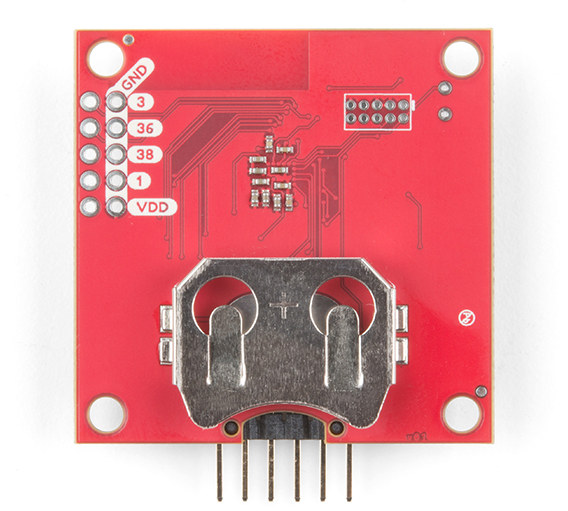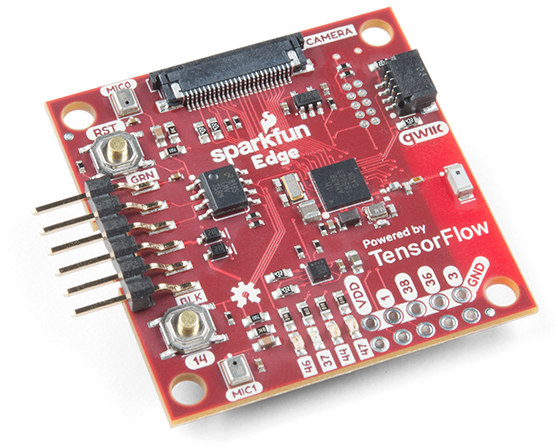The 2019 TensorFlow Dev Summit is now taking place, and we’ve already covered the launch of Google’s Coral Edge TPU dev board and USB accelerator supporting TensorFlow Lite, but there has been another interesting new development during the event: TensorFlow Lite now also supports microcontrollers (MCU), instead of the more powerful application processors.
You can easily get started with Tensorflow Lite for MCU with SparkFun Edge development board powered by Ambiq Micro Apollo3 Blue Bluetooth MCU whose ultra-efficient Arm Cortex-M4F core can run TensorFlow Lite using only 6uA/MHz.
SparkFun Edge specifications:
- MCU – Ambiq Micro Apollo3 Blue 32-bit Arm Cortex-M4F processor at 48MHz / 96MHz (TurboSPOT) with DMA, 1MB flash, 384 KB SRAM, 6uA/MHz power usage, Bluetooth support.
- Connectivity – Bluetooth LE 5 (on-chip) + Bluetooth antenna
- Camera – OV7670 camera connector
- Audio – 2x MEMS microphones with operational amplifier
- Sensor – STMicro LIS2DH12 3-axis accelerometer
- Expansion – Qwiic connector, 4x GPIO header,
- Debugging – FTDI-style serial header for programming
- Misc – 4x user LEDs, 1x user button
- Power Supply
- CR2032 coin cell holder for battery operation
- VDD (1.8 to 3.6V) / GND pins
- Dimensions – 40.6 x 40.6 x 8.9mm
 The board can manage offline machine learning applications on the ‘Edge’ of networks, such as voice, gesture, or image recognition, with TensorFlow Lite at ultra-low power consumption, e.g. from a coin-cell battery.
The board can manage offline machine learning applications on the ‘Edge’ of networks, such as voice, gesture, or image recognition, with TensorFlow Lite at ultra-low power consumption, e.g. from a coin-cell battery.
There’s documentation specific to Sparkfun Edge development board, but you’ll also find a more generic getting started guide for Tensorflow Lite for microcontrollers in Github that also lists $2 Bluepill development board, STMicro STM32F746G Discovery Board, and Eta Compute ECM3531 EVB. If you are inclined, you could also add support to other boards with instructions to port Tensorflow Lite for MCU to other platforms. You’ll just need to make sure there’s enough RAM and storage on your target since “the core runtime fits in 16KB on a Cortex M3, and with enough operators to run a speech keyword detection model, takes up a total of 22KB”. Not bad, although not quite as lightweight as “Bonsai Algorithm“.
Sparkfun Edge is now available for pre-order for $14.99 plus shipping.
Thanks to Nitin for the tip.

Jean-Luc started CNX Software in 2010 as a part-time endeavor, before quitting his job as a software engineering manager, and starting to write daily news, and reviews full time later in 2011.
Support CNX Software! Donate via cryptocurrencies, become a Patron on Patreon, or purchase goods on Amazon or Aliexpress





